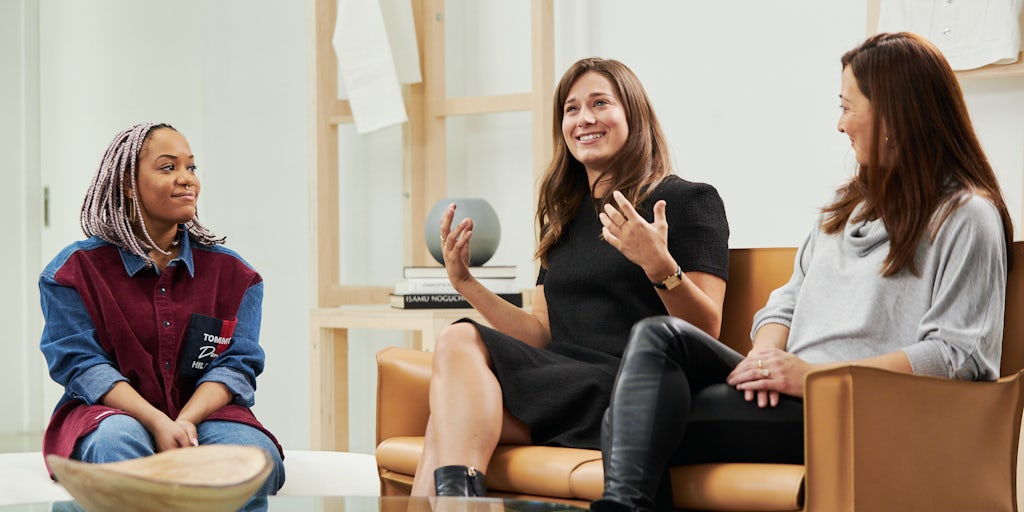Industry Leaders Share Insight on Securing Employment in 2021 | Careers
Connecting you to 1,900+ live job opportunities and over 300 of the fashion industry’s leading employers, BoF Careers Week 2021 is designed to transform your career trajectory. Take your next step today at businessoffashion.com/careers.
In a #BoFLIVE event, CFDA President CaSandra Diggs, executive recruitment consultant Karen Harvey and Farfetch’s Senior Director of Talent Acquisition Natalie Matalon discussed what matters most to employers in the fashion industry when reviewing candidates.
Discourse ranged from the soft and hard skills and leadership characteristics increasingly sought after in the market, to which adjacent industries offer the most valuable transferable skills for the fashion and luxury industries and which functions and departments are most likely to add headcount in 2021.
The industry leaders went on to share insights on what excellence looks like in the remote recruitment processes, which will remain in some hybrid form well after the Covid-19 pandemic subsides. Below, BoF highlights key insights from the event.
Refine Interview Skills
KH: Zoom is not easy, but I’ve found it to be beneficial in some ways. It may be a shorter meeting, but you will have the absolute attention of your [interviewer]. Storytelling is key. Have the arc of your journey — where you’ve been, where you are now, where you are going — down to just three or four minutes.
CD: This is a difficult time, remote [interview processes] are a challenging way to interview and recruit, but they are here to stay — even in a hybrid sense. We all have to practice. Before an interview, take time to meet with a friend and family on video. Ensure the frame and lighting is right, put some questions to them — it’s very much a case of practice makes perfect. Be succinct in your communications and take the time to prepare to ensure you’re coming into the interview confident and comfortable.
NM: Refine your message. [It is] less about what you have done in the past and more about what you will do in the future. Refinement is critical when it’s one-on-one. Understand what an organisation stands for — make sure this is something you could align yourself with. Demonstrate how you will fit into that environment.
Leadership Candidates Should Lead with Humanity
CD: In [the current climate], it’s hard to know exactly what to say to people you supervise and manage, but honesty, candour, consistency and fact-based communication are all crucial leadership qualities. As is humility — we need to start [seeing] active listening in leadership.
The number one skill that has been overlooked in this industry is data.
NM: Having the ability to evolve into different [roles] seamlessly, thriving in change, creating a roadmap, getting people excited and aligned — these are attributes you need to demonstrate to succeed and evolve over time. The fast pace of the industry is exciting, but it’s also incredibly challenging. We do want to heavily invest in and upskill the people we hire, but we need to ensure that they have the consistent attributes that will allow them to grow, from a growth mindset to creative problem-solving.
KH: In the past, the fashion industry has been very good at just talking to itself. We must take lessons and be better observers of culture — around us, but also beyond us. We operate as if we have certainty, but we have no idea what will happen next year, or even next week.
When we are struck with the kinds of events that have taken place, one after the other […] we look for leaders that are — on a personal, soft-skill level — inherently resilient. For [those] looking for work, bring up your greatest inherent ability to step up to the moment. That’s what we’re looking for in our leaders, but we need good operational leaders that can couple resilience with vision.
Align on Values to Enable a Growth Mindset
KH: For those of you out there who are looking for work, technology skills will be very badly needed. Whether that’s an emerging designer or as a company of scale, it’s relevant. In terms of hard skills, we have learnt that digital is not a bucket. It’s something that had often been side-lined when we talk to clients about their needs. Now, we have to clarify today that the number one skill that has been overlooked in this industry is data.
CD: There is a lot of social justice, diversity, equity and inclusion (DEI) and technology efforts that are being accelerated in this job market. So, we are going to see a lot of fashion companies really look to staff for those types of expertise. A lot of companies are looking to upskill and reskill their current labour force around these particular disciplines.
NM: Be sure to ask for specific examples of company values and ask probing questions: “How does a company’s diversity and inclusion agenda feed into the way that employees are treated, recognised and developed?”, “Does the organisation have communities that have a voice, and how is that voice used?” Those types of questions show that you’ve done your homework, that you are refining your point of view on whether this organisation would be right for you. Interviews shouldn’t be one-sided — you need to assess as much as you’re being assessed.

